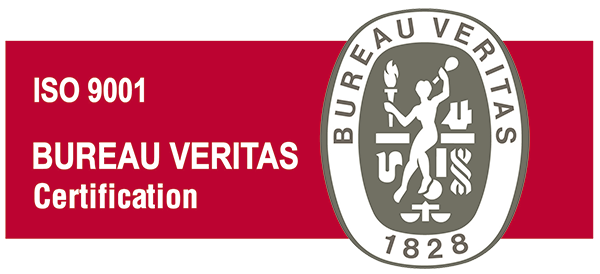Many times when thinking about drugs, the focus is on their development, since the process is immensely slow and expensive. But once we have that medicine, once we know how it acts on the patient, in what dose it is necessary or how it should be administered, it is time to produce it on a large scale.
Given the criticality of its products, the pharmaceutical sector is highly regulated. The production conditions of any pharmaceutical product are subject to cGMP (current Good Manufacturing Practices). These ensure that manufacturing conditions will always be the same and minimize the risk of product contamination. The main premise of GMP is that the drug is safe for the patient. Designing a factory and the process system that can produce under GMP conditions and with the necessary quality standards is not trivial, which is why pharmaceutical engineering was born.
Pharmaceutical engineering is responsible for the feasibility study, design (conceptual, basic engineering and detailed engineering), optimization, bidding, project management and plant qualification/validation.
- Design: the design phase is usually broken down into 3 stages:
- Conceptual engineering: based on the client’s initial requirements (products to be manufactured, pharmaceutical form, toxicology, sales forecasts, necessary areas, etc.), the available facilities and taking into account the applicable regulations, the distribution of spaces and equipment is proposed. that guarantee manufacturing. At the end of this phase, the planned investment budget to achieve the desired production can also be identified. Therefore, this phase also helps companies make the decision to continue developing the project or look for other investment alternatives.
- Basic engineering: based on the bases established in the conceptual phase, all the main and auxiliary equipment for production, their location, and the necessary services that they require are defined.
- Detailed engineering: based on everything worked on in the previous 2 phases, all installations are completely defined (down to the maximum detail), with the aim of generating sufficient documentation so that the installers can present their offers and, in Ultimately, execute the design made by engineering.
- Tender: once the detailed engineering is completed, all tender documentation is issued to be able to technically and economically compare the different offers received from the installers. Different bidding packages are usually generated that may contain several installations. The final objective of the tender is to award the execution of each package to the installer that best meets the client’s needs (quality, resources, costs and project execution time).
- Optimization: it is common for processes and their elements to become obsolete over time. Optimizing them to reduce manufacturing costs and times is key to the company’s profitability. This stage is increasingly important, taking into account the advances in automation and digitalization of pharmaceutical processes.
- Qualification/validation: after installation and commissioning there is a set of verifications and tests that serve to ensure that an installation/equipment/process works as expected, in the same way over time, without negatively affecting quality. of the final product and complying with regulations.
One of the most exciting things about pharmaceutical engineering is that each plant is different, and with each new project comes new challenges. This is because the products, capacities, pharmaceutical form and degree of automation change in each case. Each of these parameters has specific regulatory requirements that make the design different in each case (for example: a generic oral solids plant is very different from a biotechnological one where monoclonal antibodies are produced). Furthermore, several different medications are usually produced in a plant, so the different process elements will have to be combined to have optimal and versatile production, eliminating any possibility of cross contamination, while complying with the established standard.
Among the most common pharmaceutical forms we find:
- Supositorios
- Parches y ODF (Oral Dissolvable Films)
- Estériles inyectables
- OSDF (Oral Solid Dosage Forms)
- Aerosoles
- Semisólidos
- Inhaladores
- Jarabes y soluciones
- Estériles no inyectables
Pharmaceutical engineering requires continuous training. Mainly, due to two factors. On the one hand, innovation in equipment and techniques is constant, so we have to be prepared to always offer the best solutions for our clients. On the other hand, changes in regulations are also common, especially now that biological medicines have established themselves on the market, offering a new world of possibilities.
Why should I hire an engineering professional to carry out my projects?
Some pharmaceutical laboratories carry out and execute engineering projects on their own without having a pharmaceutical engineering specialist. Surely, the project will end up being carried out and the product will end up being manufactured, but it is highly probable that along the way there will have been significant delays and, especially, design errors that imply changes in the facilities (equipment that does not fit in the rooms, pipe dimensions incorrect or with non-drainable low points, poorly optimized duct and pipe routing, etc.). Inevitably this will translate into very significant extra costs, which will be much higher than the costs derived from hiring the services of a specialized engineering company.
How do we add value from Klinea Pharmaceutical Engineering?
At Klinea, satisfying the needs of our clients is a priority. That is why we accompany them in all phases of the project (be it the construction of an entire plant or just a change in a part of the factory). In addition, we provide support in decision-making so that our clients have the best solutions to the most critical problems. These are the factors that most differentiate us:
Experts in the process:
In our team we have engineers, pharmacists and biotechnologists with extensive experience in the sector. We analyze the production process and identify the needs and critical points for the subsequent development of a customized solution based on knowledge and technical rigor under the required quality standards (GMP, FDA or others).
Digital transformation:
We go further and design a project aligned with the latest applicable technological advances. We provide the infrastructure with possible immediate or adaptive automation according to future needs.
Quality-oriented (quality driven):
From the beginning of the engineering project we have the support of our quality department. They are responsible for defining the quality strategy together with the client and ensuring compliance with standards and good manufacturing practices throughout the entire design.
We are not an installer
Unlike an installer, the services we offer do not depend on which systems end up being installed. At Klinea, as independent engineering, we ensure that the installers meet the agreed deadlines and objectives, and that the installed equipment is the most suitable for our client’s production.
Project management:
We take care of the comprehensive management of the project, ensuring compliance with the schedule, quality and costs from conceptual engineering to commissioning and qualification.
construction management
Among our services, we have construction management. Our experience in the pharmaceutical industry and in construction management allows us to supervise the work with the necessary knowledge so that the execution of the design meets all pharmaceutical requirements.
Hiring engineering for your projects is synonymous with preventing problems. It means ensuring that avoidable unforeseen events will not arise in the development of projects, which end up translating into delays and cost overruns. At Klinea we have enormous experience in the pharmaceutical industry, which, together with the satisfaction of our
estros clientes, avala nuestra capacidad para prestar un servicio excelente.
If you are interested in learning more about us and how we can help you, contact us: klinea@klinea.es



